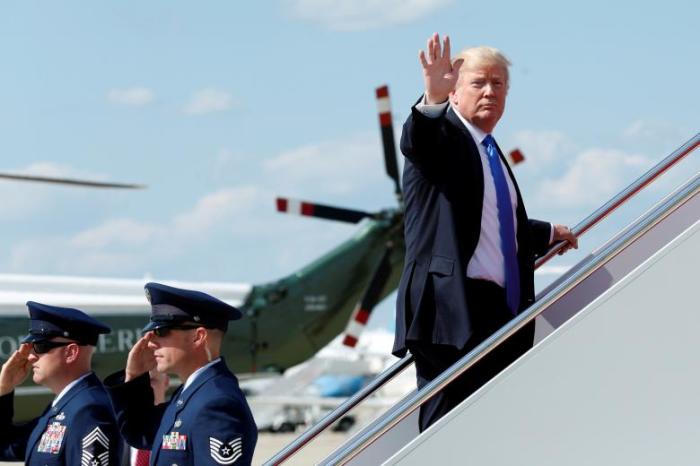Supreme Court Lets Parts of Trump Travel Ban Take Effect

The U.S. Supreme Court on Monday handed a victory to President Donald Trump by narrowing the scope of lower court rulings that blocked his travel ban on people from six Muslim-majority countries and agreeing to hear his appeals in the cases.
The court said it would hear arguments on the legality of one of Trump's signature policies in his first months as president in the court's next term, which starts in October.
The justices granted parts of his administration's emergency request to put the March 6 executive order into effect immediately while the legal battle continues.
The court said that the travel ban is in effect "with respect to foreign nationals who lack any bona fide relationship with a person or entity in the United States."
The court also said it would allow a 120-day ban on all refugees entering the United States to go into effect on the same grounds.
Three of the court's conservatives said they would have granted Trump's request in full, including Trump appointee Neil Gorsuch.
Trump's first immigration order, signed in late January, was struck down in federal court. In March, he signed a revised version that removed Iraq from the list of Muslim-majority countries from which immigrants would be temporarily banned, suspended refugee resettlement and limited the number of refugees in fiscal year 2017 to 50,000.
The revised order was also blocked by lower courts that found it discriminatory. The Trump administration appealed to the Supreme Court in June.
While many Christian groups and evangelicals have spoken out against the travel ban, a Pew Research Center survey earlier this year found that 76 percent of respondents who identified as white evangelicals supported the ban.





























